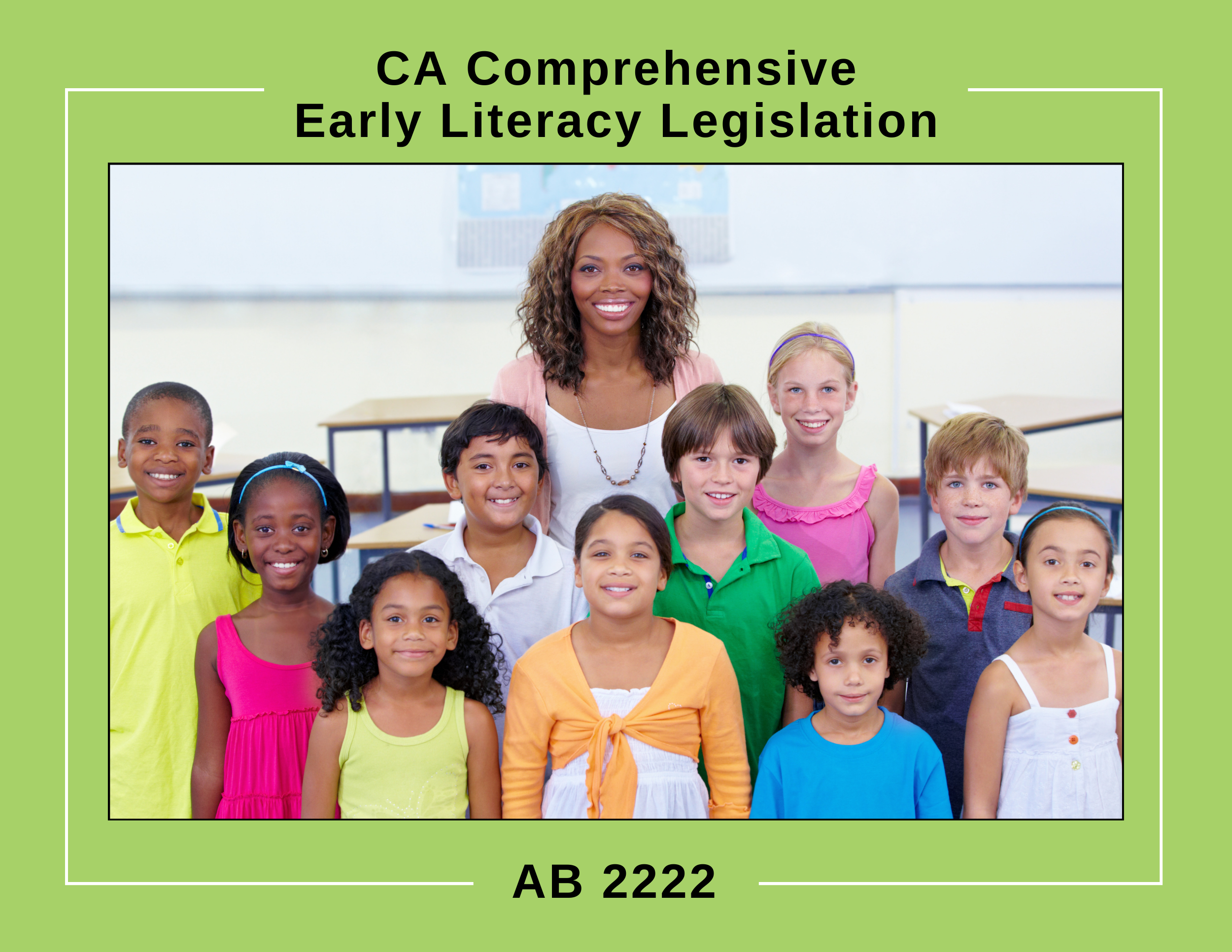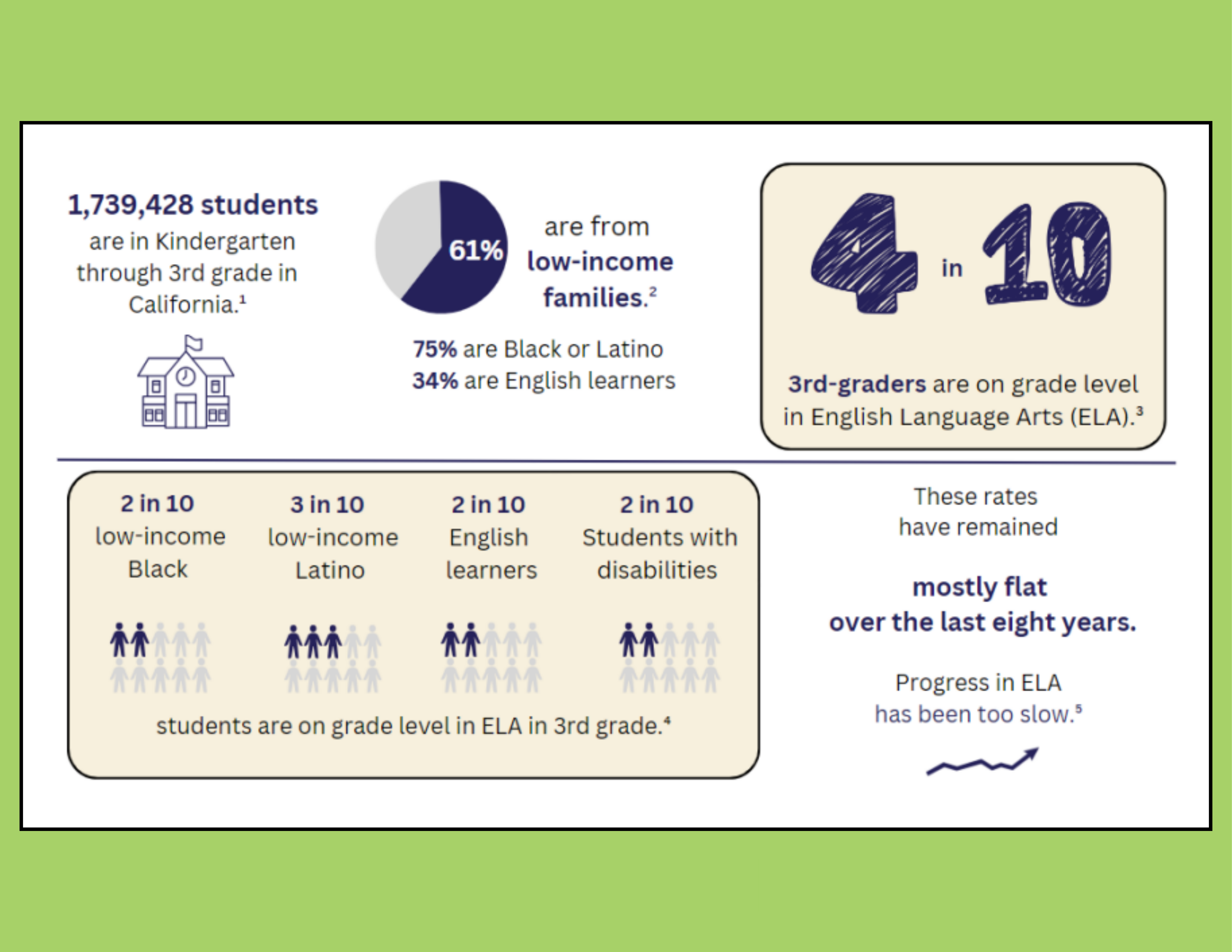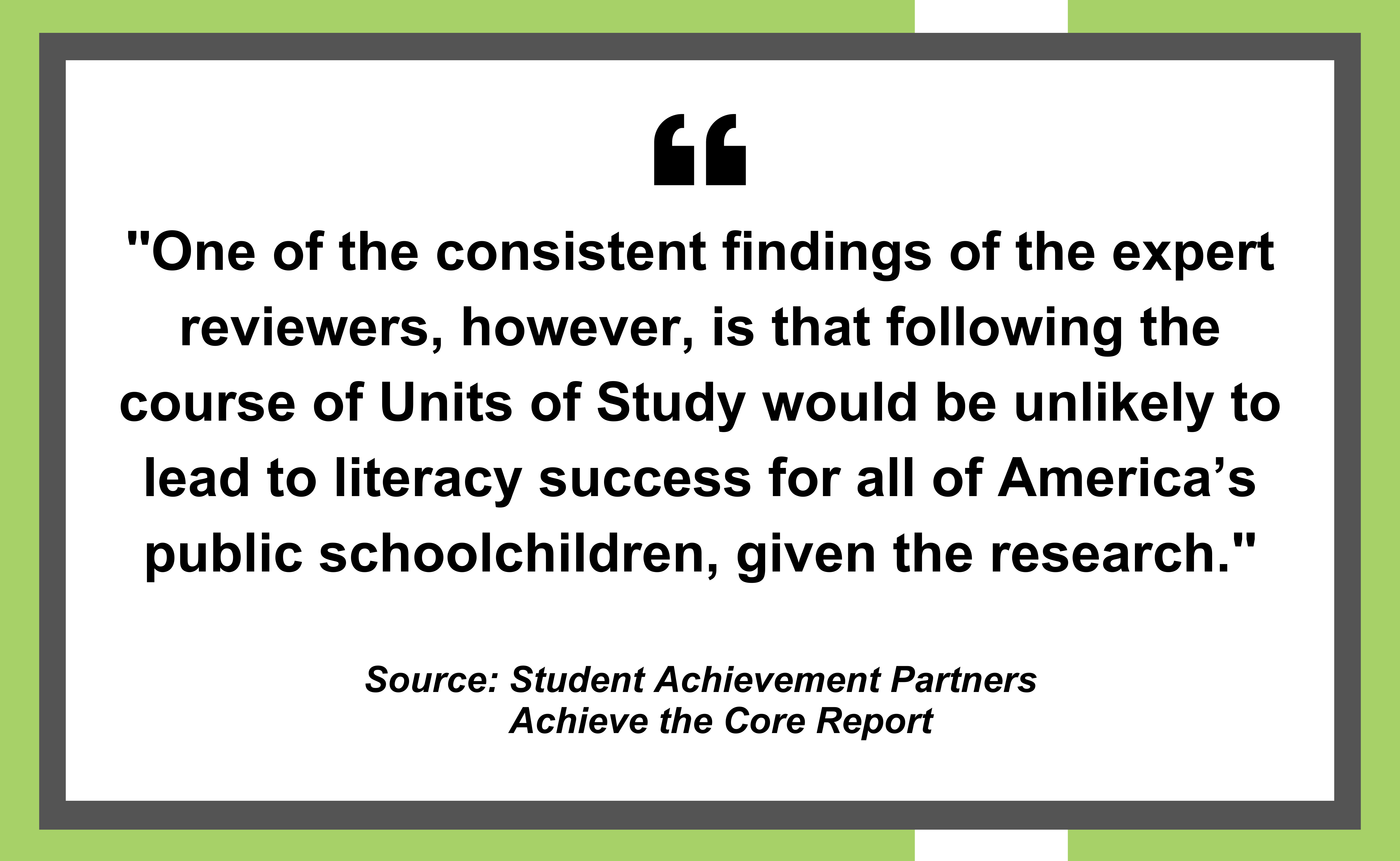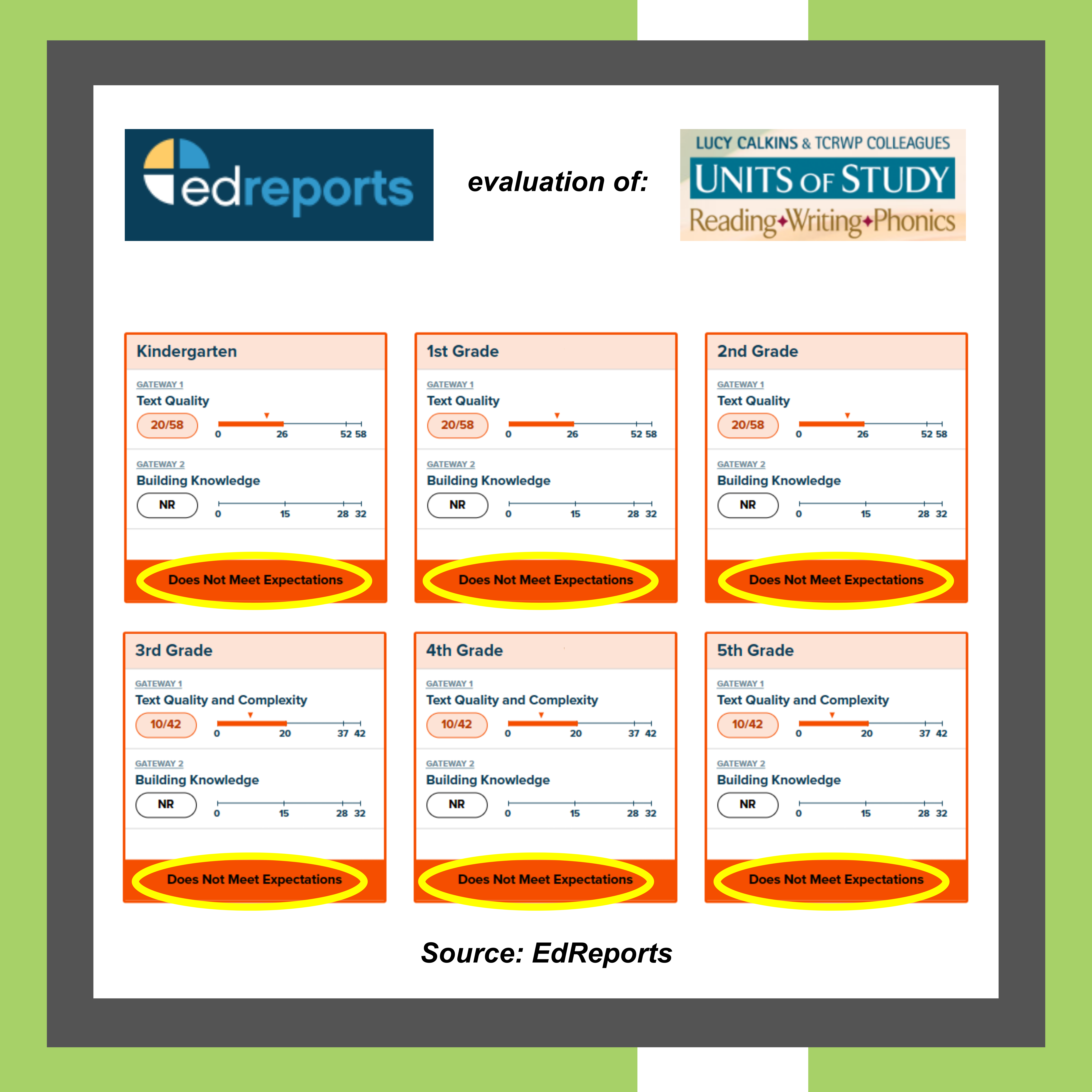Early literacy bill calls for an evidence-based approach to teaching children how to read that adheres to the science of reading.
It’s time California ensures that its children can read proficiently by the end of 3rd grade.
On February 7, 2024, Assemblymember Blanca Rubio (D-Baldwin Park) introduced a comprehensive early literacy bill, Assembly Bill 2222 (AB 2222) to ensure an evidence-based approach to teaching all of California’s elementary school students how to read and address the deep inequities in reading achievement for California’s most vulnerable students. The bill has bipartisan support from 13 co-authors. Decoding Dyslexia CA is co-sponsoring this legislation with EdVoice and Families In Schools.
Reading is the gateway to knowledge and future opportunities for students. Unfortunately, California is facing a literacy crisis in part due to ineffective early literacy instruction. Currently, only 4 in 10 third grade students are at grade level in English language arts. Nearly 70% of 3rd-grade students from low-income communities are not meeting state standards for English Language Arts, and the vast majority of those falling behind are disproportionately Black and Latino children, English learners, and students with disabilities. It is critical that we address these deep inequities and are grateful to Assemblymember Rubio for introducing legislation that will set up both students and educators for success. We are proud to co-sponsor AB 2222 and will be calling on our membership and community to help advocate for its passage.
AB 2222 focuses on three specific priorities with overarching accountability and transparency measures:
- Access to TK-8 literacy instructional materials that adhere to the science of reading;
- Professional development and training for current educators in evidence-based literacy instruction; and
- Improved accountability in teacher preparation programs related to new literacy teaching standards and support for professional development for teacher preparation faculty.
Adhering to the science of reading means following evidence from a large body of interdisciplinary research that guides effective classroom practices benefitting all students, including English learners and those at risk of or with dyslexia. Evidence-based practices include systematic and explicit instruction focused on phonological and phonemic awareness, phonics, fluency, oral language development, vocabulary, comprehension, and writing.
CALL TO ACTION
To show support for AB 2222, we urge you to:
- Sign our petition to encourage your state legislators to support AB 2222
- Click here to learn more about the bill
- Signup for DDCA emails to stay up-to-date on the bill’s journey through CA’s legislature
- Explore CaliforniaKidsRead.org for more information, resources and latest news on the bill
__________________________________________________________________________
DDCA is pleased to team with EdVoice Institute, California Reading Coalition, Families in Schools and 21st Century Alliance in the newly-formed California Early Literacy Coalition.
This California Early Literacy Coalition helps to influence changes to state policy to ensure all California’s children achieve literacy before the end of elementary school. Please read our Early Literacy Policy Brief for more information.
#CaliforniaKidsRead #AB2222 #EarlyLiteracy #EarlyLiteracyMatters #ScienceOfReading
__________________________________________________________________________





